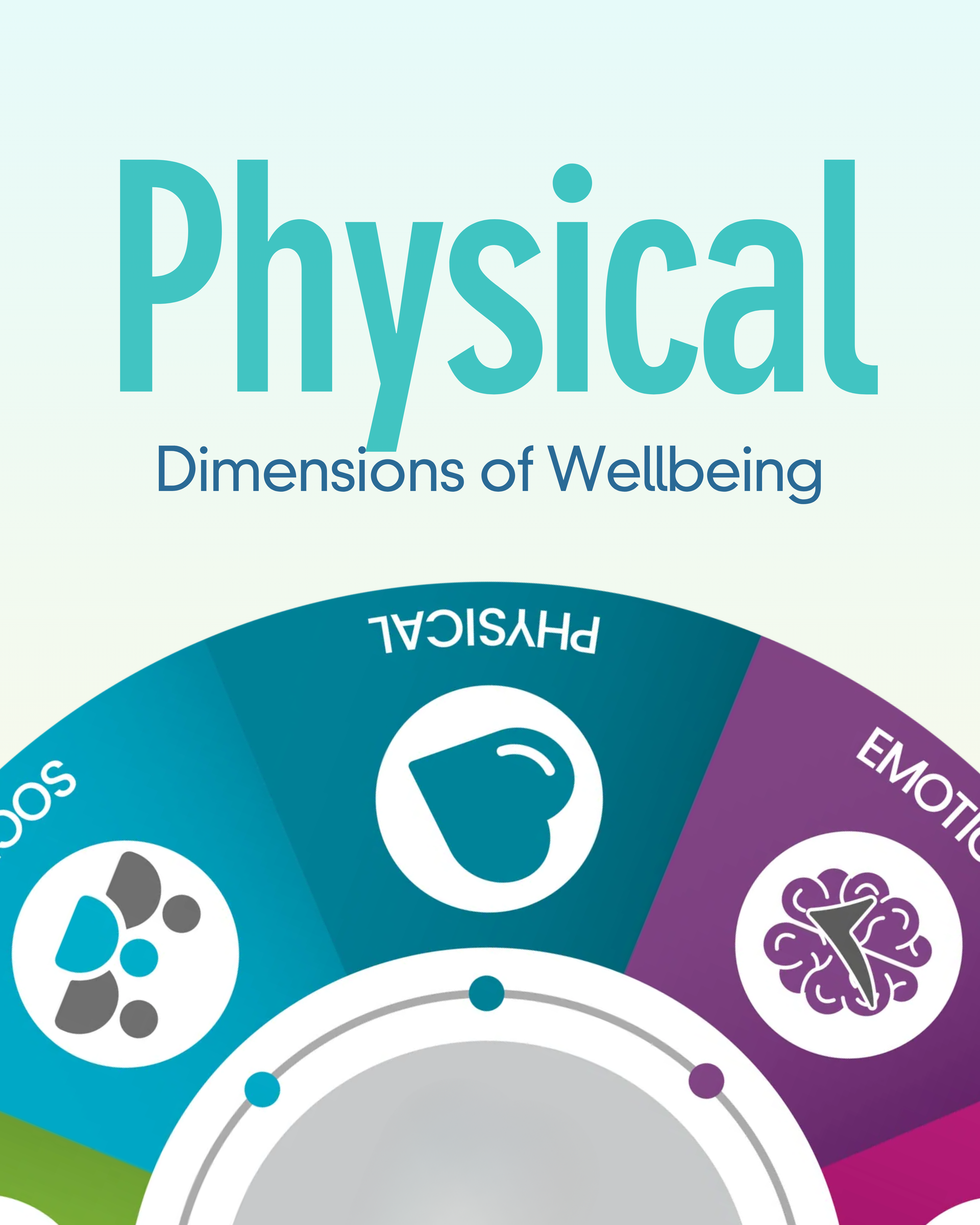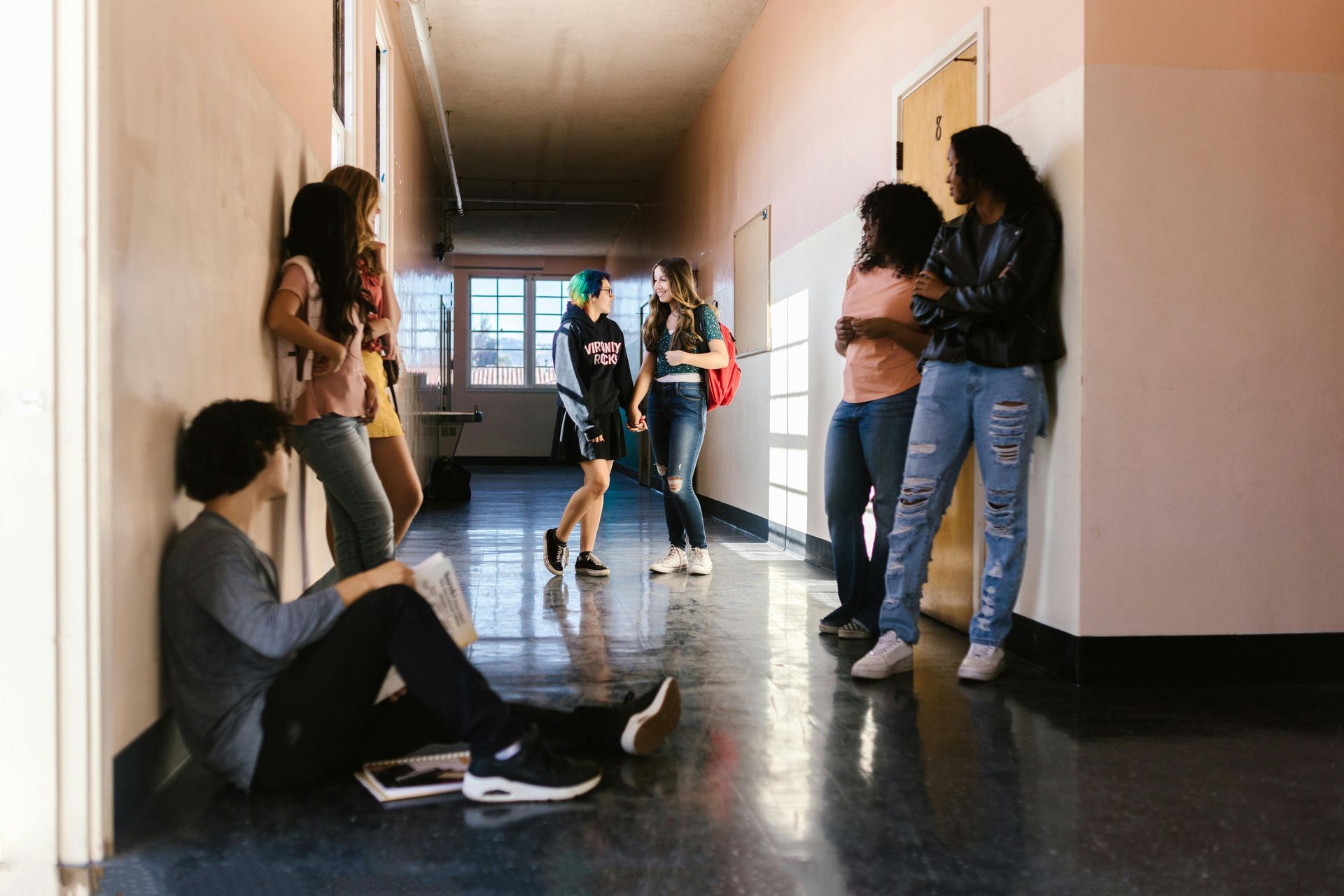The 8 Dimensions of Wellbeing: Physical Wellbeing

When we talk about your “wellbeing” as a college student, we’re talking about more than having a good attitude or hitting the gym. Wellbeing is made up of eight interconnected dimensions that shape how we feel, function, and live. These include emotional, physical, social, intellectual, spiritual, environmental, occupational, and financial wellbeing. When one area is off, it can affect all the others.
In this post, we’re taking a closer look at the second dimension: Physical Wellbeing.
What Is Physical Wellbeing?
Physical wellbeing is about how you care for your body through movement, nutrition, rest, and routine health practices. However, the focus extends beyond aesthetics or achieving specific fitness objectives. It involves providing your body with the necessary support so that it can, in turn, enable you to perform effectively in all other aspects of your life.

This dimension focuses on energy, strength, endurance, and basic functionality. Are you sleeping well? Are you fueling your body with what it needs? Do you feel capable of getting through your day without crashing?
How Physical Wellbeing Shows Up
As a student, your physical wellbeing shows up in ways you might not even connect to “health” at first glance. Some signs that this dimension is in a good place might include:
- You have consistent energy throughout the day (not just sugar highs and caffeine crashes).
- You sleep long and well most nights, waking up feeling rested.
- You move your body in ways that feel good and help you release stress.
- You feel physically capable of doing the things your day demands like walking across campus, carrying your backpack, focusing in class.
- Based on cues your body provides, you’re able to recognize when you need rest, hydration, movement, or a break and respond to those needs.
Physical wellbeing also shows up in your ability to bounce back from illness, how often you get sick, your ability to concentrate, and even how emotionally steady you feel. Your body and brain are constantly communicating, and physical health plays a big part in that connection.

What to Watch For
In college, it’s easy to deprioritize physical wellbeing, especially when schedules are packed, sleep is short, and cheap food or energy drinks are everywhere. But over time, you might start noticing signs that this dimension needs more attention:
- Frequent fatigue or low energy, even after sleeping
- Difficulty falling or staying asleep
- Regular headaches, stomach issues, or muscle aches
- Skipping meals, emotional eating, or irregular eating patterns
- Feeling physically tense, sluggish, or disconnected from your body
- Avoiding movement or activity because you feel too drained
These signs don’t mean you’ve failed. They’re simply your body’s way of letting you know it needs a little more care. Noticing them is the first step toward making small shifts that can support your physical wellbeing.
Coming Up Next:
Social Wellbeing










